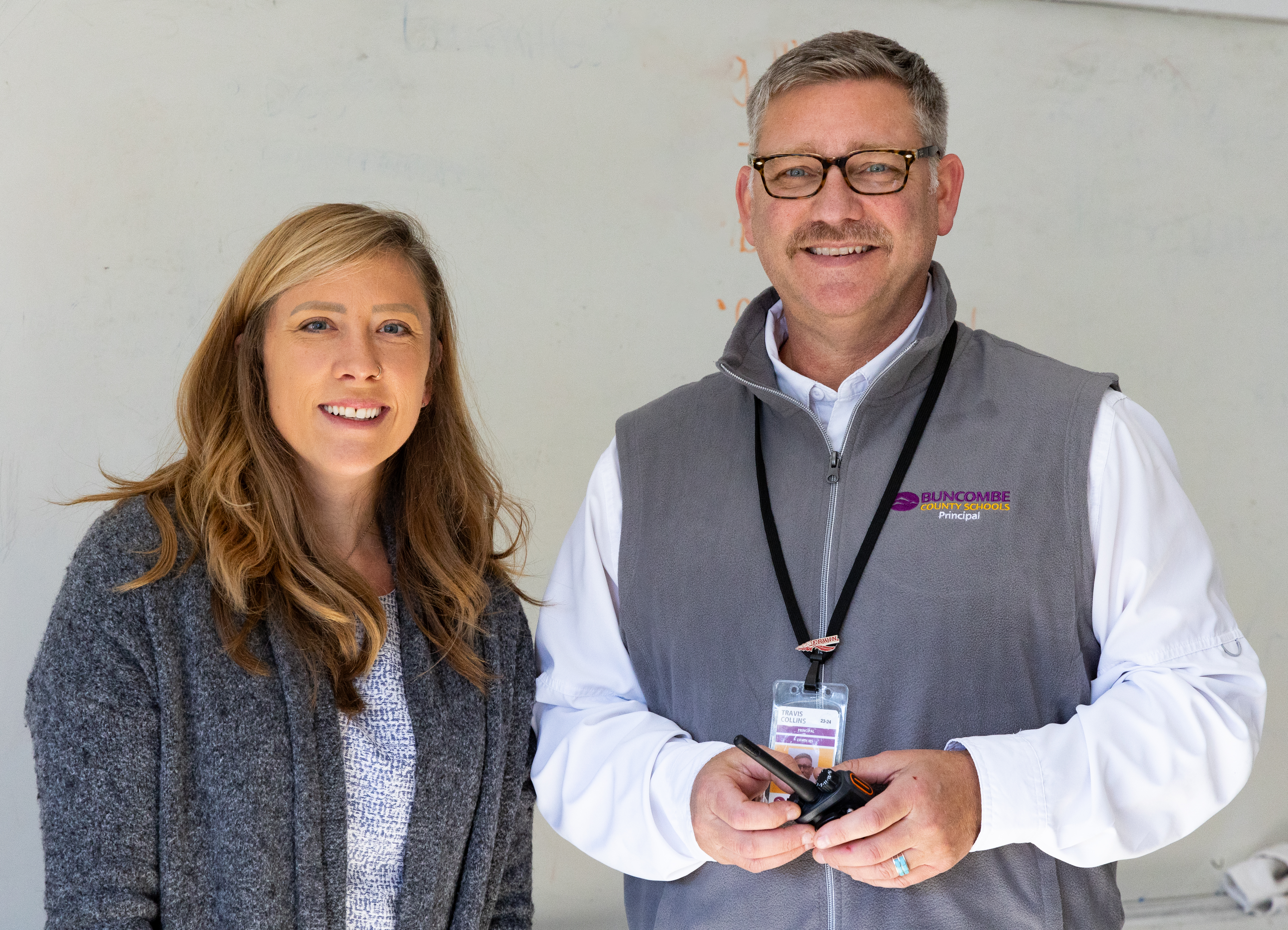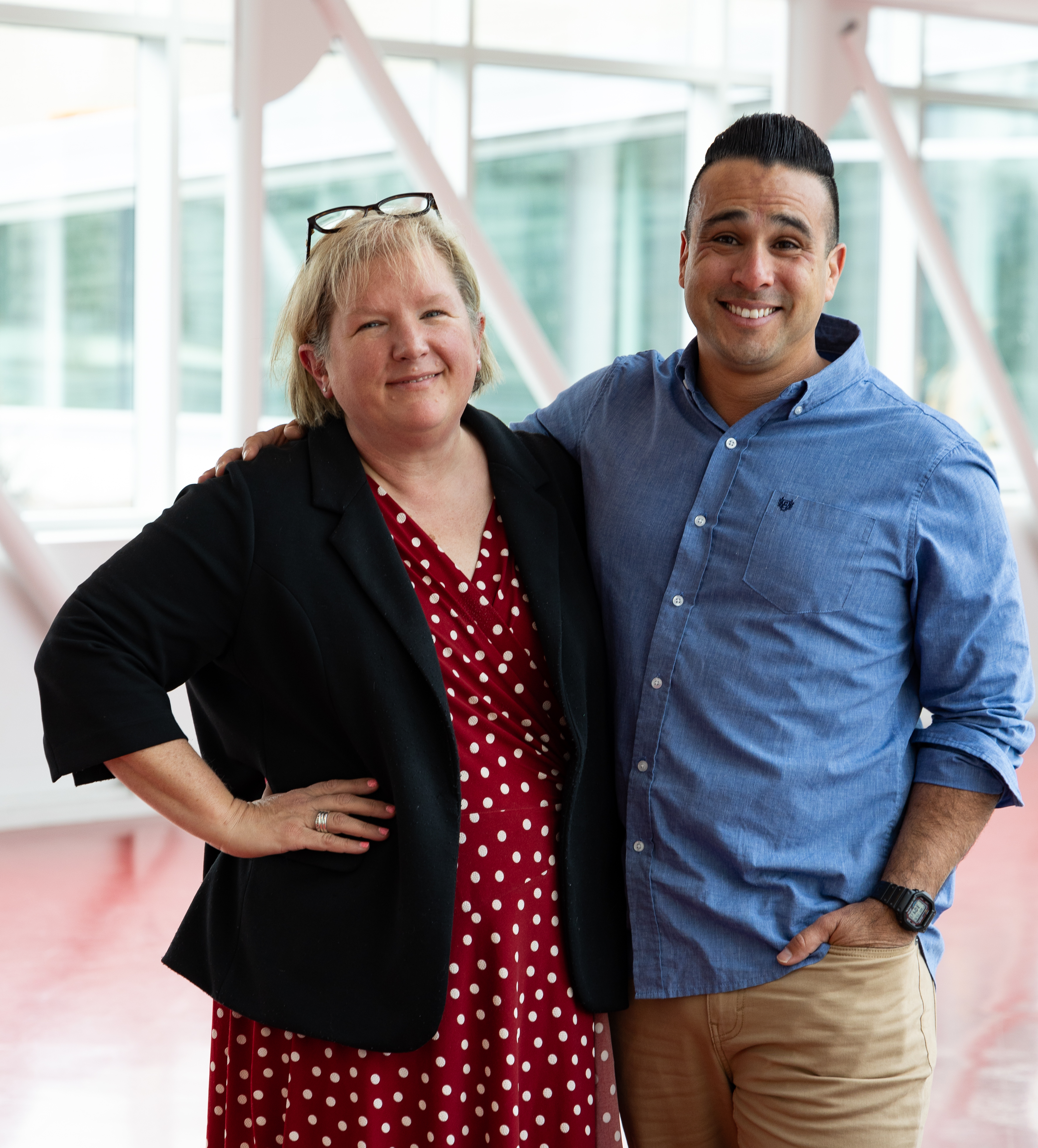
4 minute read
Investment in Action: Community Schools
Principals Travis Collins and Jo Landreth on the power and promise of United Way’s Community Schools strategy.
Making an Impact
Since 2010, we’ve worked with both Asheville City Schools and Buncombe County Schools to advance the educational success of our youth by wrapping community support around them. UWABC partners with seven area schools, funding on-site coordinators who make connections with community partners to provide services like healthcare and expanded learning opportunities. We asked two principals to share their thoughts about how the strategy is working and the challenges ahead.

Travis Collins, Principal at Erwin Middle School
About his school: “We look significantly different from most other schools in Western North Carolina. Our diversity is our superpower—13 languages are spoken at our school. And it’s in a unique setting—just outside Asheville, but next-door.”
Challenges facing students today: “Many of our students’ families have to work two or more jobs to make ends meet. Rent is significantly higher in Asheville compared to our rural neighbors. When gas prices are over $4, that creates economic havoc. Add high inflation, and folks are struggling financially.”
How the Community Schools strategy can help bridge gaps: “One of the community partnerships we’ve found to be very successful—and we’re still working on—is with UMOJA Health, Wellness, and Justice Collective. Executive Director Michael Hayes is able to meet with students coming from trauma-filled places and help them transition from ‘survival brain’ to ‘learning brain.’ The door was opened through the relationships we have being a Community School.”
The benefits of having a Community School Coordinator on-site: “As an example, our coordinator, Allison Hughes, was able to create a partnership with a local nonprofit called RiverLink, who work in improving waterways. Now we have 15 students who play in the creek examining our water with a scientist every Monday. Allison is very proactive in finding ways to engage our kids.”
What gives him hope for the future: “Having been a principal in four previous schools, one thing I could not help noticing in my first few months at Erwin was the depth of resources that the United Way has been able to coordinate for our students and families. The partnership we have as part of the Community Schools network breathes life into our existing relationships and opens the door to new ones in support of our students and their families.”
We have a student healthcare center on our campus. When I became a school administrator 20 years ago, I never even imagined that was a possibility.

Jo Landreth, Principal at Asheville Middle School
About her school: “Because we’re downtown, it’s one of the few places where all the parts of Asheville come together and work and live side-by-side, which makes it unique to see the diversity of our community.”
Challenges facing students today: “The students who have the furthest to go need to be growing at a rate faster than other students. Trying to figure out how to make that happen is a challenge every day. There is learning loss from the pandemic. And for a district that already had a big Black-White achievement gap, the learning loss compounded it. But other things were also lost—not just reading and math. My current sixth graders left school in second grade and were at home for most of third grade. That’s when kids start learning how to work with other people.”
How the Community Schools strategy can help bridge gaps: “One of the pillars of the Community Schools strategy is integrated student support—things like health centers and mental health resources here in the school. That is super-powerful. Students can meet with therapists here—nobody has to come get them, take them there, and bring them back, so they’re not missing learning time.”
The benefits of having a Community School Coordinator on-site: “We feed off each other and every idea gets a little bigger. Our coordinator, Steve Martinez, is really good at making connections, and the fact that he’s not from Asheville is really helpful—he just asks everybody for support. That has expanded our network.”
What gives her hope for the future: “All this work we’ve been doing—as a Community School, academically, and with behavioral expectations—is going to come together in a way to really support our students in the best way possible.”
I love that United Way has chosen youth as a focus because they’re the future of our community. When you focus resources, you’re able to make a greater impact.








